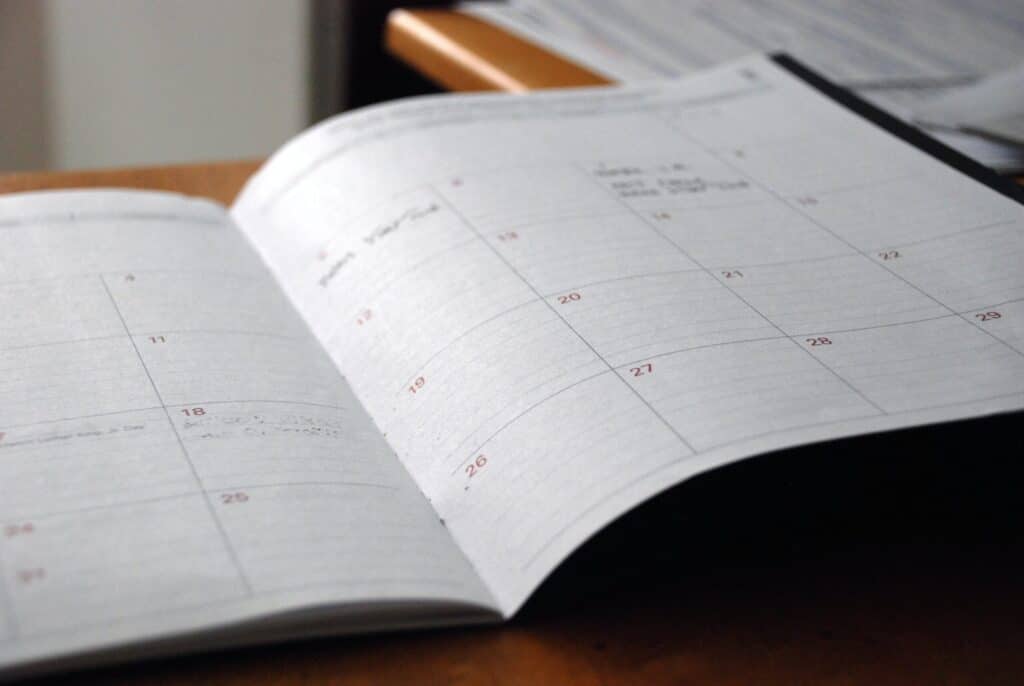Addiction is an incredibly all-consuming disease that devours time at warp speed. Time obtaining, consuming, and recovering from substance use seems to dissolve into the ether, which is why many people in recovery feel overwhelmed with just how many hours are in a day. Time management can be a struggle for anyone in modern times, with all of the distractions from social media, notifications pinging left and right, and busy lives with work and hobbies. However, those in recovery tend to face some unique struggles with managing their daily schedules, which can lead to unnecessary stress and hardship. With some practice and hard work, time management is a skill that can be sharpened to best suit a new life free of addiction and the maladies that come with it.
Lists, Lists, and more Lists!
Compiling a set of lists with items ranging in urgency is the perfect way to manage chores and other things hanging in the valance. It’s important to note that sometimes one grand list won’t do, especially when it’s too vague. Breaking lists down into “chores,” “work,” and “recovery” is excellent for keeping track of progress in various aspects of daily life.
Example:
To-Do Lists
Home |
Work |
Recovery |
| Buy new bath towels | Ask for Friday off by 5/13/2023 | MAT check-in by 5/27/2023 |
| Organize kitchen drawers | Email Ken about monthly meeting | Attend community outreach |
| Change lightbulbs | Ask boss for raise | Schedule bloodwork panel |
| Fix kitchen sink leak | Finish report | Refill MAT prescription |
| Laundry | Restock supplies | Group counseling |
Daily Prioritizing
Modern-day life requires the average human to juggle many different things in a single day. Prioritizing the most important thing off each to-do list into a “daily goal list” is a smart way to handle the chaos. Keeping track of due dates on these lists ensures that everything will get done on time, and it doesn’t hurt to work ahead of schedule. Balance is important for daily lists, allowing time-sensitive matters to take precedence over things that aren’t as pressing. For heavy-duty lists, it’s also a good idea to make a “weekly to-do” compilation, especially when tasks require some prep work.
Example:
Daily To-Do List
| Buy new bath towels |
| Ask for Friday off by 5/13/2023 |
| MAT check-in by 5/27/2023 |
Weekly To-Do List
| Fix kitchen sink leak |
| Refill MAT prescription |
| Email Ken about monthly meeting |
| Group counseling |
Take Time Off
Adhering to a daily list every day can quickly become exhausting, making breaks a vital part of productivity. Allotting at least one day each week for the “easy stuff” or simply resting is crucial to conserving energy and making time for self-care. Avoiding burnout is more critical than being ahead of schedule or perfecting the art of time management, as stress is a dangerous relapse trigger. Still, with these simple methods, relearning to execute tasks will feel empowering and keep recovery progress on track.
BAART offers medication-assisted treatment for those with substance use disorder in a professional and private outpatient setting. Specialized medical providers and nursing staff treat each BAART patient with respect and compassion as they enter treatment and work towards a new future free from substance misuse and addiction. To learn more about the programs available, message or call the nearest BAART location and speak with a knowledgeable representative today.



